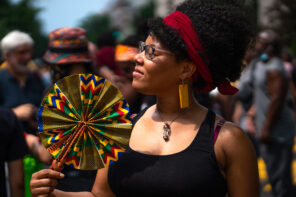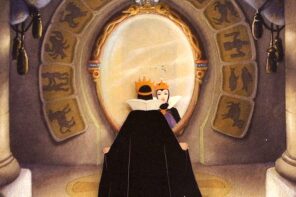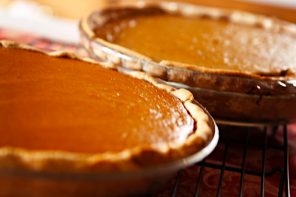I am the fifth child of a Methodist minister. Although we were eventually eight siblings total, I was always just a tad bit off the beaten path from my family. I couldn’t wait to go to school, did well when in it, and had a love for reading that none of them has ever demonstrated. I discovered the public library when I was about 12 years old, and it transformed my life. The idea that all I needed was my name and address on a paper card and I could get books to take home for free for as long as two weeks, well, that was just about as good as a trip to the candy store or the sound of the ice cream truck!
For years, when asked “what are your hobbies?” I would put “reading.” It took a long time before I thought this was not cool. Still, even at an early age I didn’t necessarily want to be the odd girl out from my family. So I took my books into the bedroom and shut the door, rather than reading out in the family room. I guess you could say I was sort of a closet reader.
Nothing could compete with my love of reading, though, and throughout high school, I watched little or no television. To this day, I can’t abide for a commercial to break into the story, so I prefer the movies, or still a book. I was smitten by the way words would unfold into meanings, and these built upon themselves to unfold worlds of events, persons, and places.
As a Muslim by choice, I’m pretty clear on one thing: it makes little difference how you enter into Islam. But it makes all the difference what you do when you are in there. So if the door into Islam was your parents and your community, you still have to make some assessment of who you are, and how you are, as a Muslim. My own door was kind of accidental. I went to a mosque for more information about this Islam, I had read a little about in books. Because I had my hair covered and was wearing a long skirt, I think the brothers assumed I was already there, and I ended up taking my shahadah, declaration of faith or witness.
It was Thanksgiving day 1972.
From there, I returned to my university equipped with a small “how to pray” booklet, and a lot of library books. I’m sure all that reading brought more questions than answers, but that was all I had. I was once again in the closet of stories. Four months later, I was talking to some neighborhood friends about it and one of them gave me a copy of the Qur’an. That was undoubtedly the greatest gift I have ever received.
When I started reading it the whole universe unfolded before me. God was no longer some remote abstraction, but a living reality organizing a world of transformative and creative beauty.
I was so struck by the worldview I could only glimpse through an English translation, I became obsessed with the option to remove any and all barriers to my unfolding greater meaning and looking even deeper into the universe. I started my study of Arabic on my own, learning the alphabet in two days. Every day I would read an Arabic exercise book from cover to cover. One part of it was pronunciation exercises, leading to words, leading to sentences, and the other part was the last juz’ of the Qur’an. I read it every day after morning prayer.
I also started memorizing chapters of the Qur’an: one each week, until the fall semester rolled around and I could at long last register in an Arabic language class. Still, it was the miracle of the text that drove me. Every word I learned, every grammatical construct, I had already come upon in the Qur’an—although by using the phonetics alone.
About the only thing that slowed down this rabid pace was becoming a mother. So I had two children (including one born in Libya, where the knots in my ear and my tongue were loosened) before I had a chance to pick up my love again. After one year in graduate school I spent a year in Cairo specifically for an intensive immersion study of the Arabic language. Each student was linked with a specialist in the area of their choosing in addition to our four or five classes. I chose tafsir, with a professor from Cairo University.
I was so smitten by this idea of a one-on-one with the Qur’an that I did not question his methodology. That is, until we came to a passage about female slaves. I could not see from the words of the Qur’an how he came to his conclusions. And because he did not give any indications how he had gotten there, I was left to take it for granted that he “knew.” I needed to know how he had arrived at his conclusions, but there was no questioning him on it.
So, I devised a study plan for the following semester to simply do a survey of tafsir literature. It was sometimes clear how conclusions were drawn, but often they took certain leaps that I either could not (or would not) follow. I also asked permission to take a course at alAzhar University in philosophy, but this was more as an exercise in time and place. By the time I returned to my own university, I had attained the level of fluency I needed to do what I had been motivated to do when I first fell in love with the Qur’an: read it for myself.
My advisor assigned me a topic for the dissertation, but every time I approached the text to collect data, the question of gender and gender relations would pull my attention. So, in the end I went with my own heart. It didn’t help that I had an all-male committee for my research. But one discovery did make a difference: Muslims believe the Qur’an is the words of Allah, sent down to the Prophet Muhammad as the miracle of his Prophetic mission. It is held in such high esteem, that to this day, we continue to memorize, study, and reflect upon it.
Although thousands of books have been written about the Qur’an, we have no record of women’s understandings or interpretations. None. For over fourteen centuries, women’s voices about the meaning of the text have not been written, have not been passed down, have not been preserved. It occurred to me that this might just make a difference.
And so it has.




